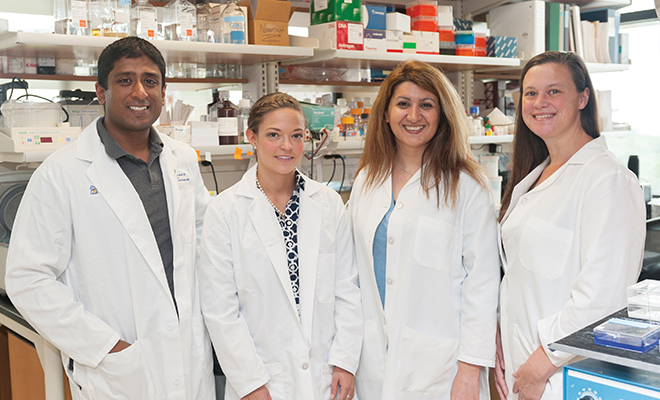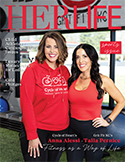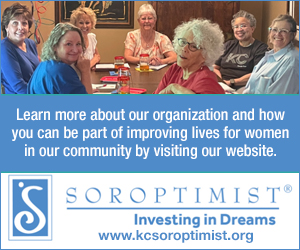 Lauren Frisch Pusateri
Lauren Frisch Pusateri
Spotlight on The Vicki Welsh Fund
It was a chance encounter that brought two people together, resulting in a relationship that’s leading the way in ovarian cancer research. Dr. Safinur (Safi) Atay Perry, Postdoctoral Fellow, KUMC, was working on early detection biomarkers studies with her supervisor, Dr. Andrew K. Godwin, when David Welsh, co-founder of the Vicki Welsh Fund, visited. David was so impressed with their efforts that his organization funded a postdoctoral fellowship to advance Safi’s research.
“I met David in 2011 when he visited our lab. He spoke to me about his wife and how she lost her battle to ovarian cancer, and it touched my heart,” Safi recalled. “I knew I needed to do all I could to help battle this disease.”
Battle is the appropriate word, because the chances of surviving ovarian cancer can be very slim. The symptoms are subtle, persistent and usually increase over time, making it difficult to detect in the early stages. Because the symptoms are unobtrusive, fewer than 20 percent of women find their cancer at an early stage. Most women are diagnosed at a later stage when the chances of survival for five years can be less than 50 percent. However, when detected early and treated before the cancer has spread outside the ovary, five-year survival rates increase to 92 percent.
Know the Symptoms
The Vicki Welsh Fund is dedicated to educating women about ovarian cancer with a particular emphasis on driving awareness of the symptoms. The four primary ones are bloating; pelvic or abdominal pain; urinary urgency or frequency; and difficulty eating or feeling full.
In addition to enlightening women about the symptoms, the Vicki Welsh Fund offers research grants that have helped fund Safi’s studies, among others, on this silent killer. She’s delving into understanding why some women are more likely to get ovarian cancer and why it returns in some patients. She’s working to comprehend why some treatments are successful for some patients and not for others. “The biology underlying ovarian cancer is really complex, even for scientists, because it’s so different case by case. When we treat someone who has ovarian cancer, we don’t know the odds, nor do we know why some survive and some don’t. It’s so very perplexing,” revealed Safi. “Many researchers focus on the tumor and not the impact it’s having on the body’s immune system. But my research is taking a look at how a person’s body is reacting to the tumor and with that data we hope to determine the best way to treat it.”
Research in Immune System Response
A segment of Safi’s research is reviewing how “biomarkers” from an ovarian cancer tumor can give the medical community insight on how to best treat their patients with the highest rate of success. A marker is a substance produced by abnormal cells and dispersed through the blood stream. Once the cancer shifts into a higher gear, the markers are produced in very high levels.
“I work on small vesicles released by the tumor at the primary site that are called exosomes, which contain a multitude of biomarkers. You can actually find these floating in your blood even when the tumor is only a centimeter in size,” noted Safi. “My research is focused on how the immune system responds to the tumor and ways that we can get the body to actually reject the tumor, with fewer side effects for the patient. But once again, ovarian cancer is so different from one woman to the next so we don’t know how treatment will impact it. Treatment regimens are well established for other cancers but not for ovarian cancer.”
Knowledge and Communication
While Safi’s research continues, she offers advice on how women can beat the low survival rate for ovarian cancer, and it comes down to understanding yourself and your body. “Nobody knows your body better than you. When you feel there’s something wrong, don’t wait; get your answer now. Nothing’s more important than your health,” she stated. “If you know someone who has ovarian cancer, talk with them, offer support and learn from them. Visit Facebook pages, Twitter feeds or blog posts focusing on ovarian cancer. When you’re educated, it’s easier to recognize the signs.”
But while her research is daunting and the disease is perplexing, Safi keeps up her spirits by focusing on the positive. “I enjoy working with the Vicki Welsh Fund because it really opened the door for me to be involved with advocacy groups and survivors,” she remarked. “I’m excited to talk with others in the community about ovarian cancer and how to address it. Every day I wake up telling myself that I’m going to do the best I can to help others and defeat ovarian cancer. Even if I don’t discover the answer, I hope others might build on my findings.” HLM









